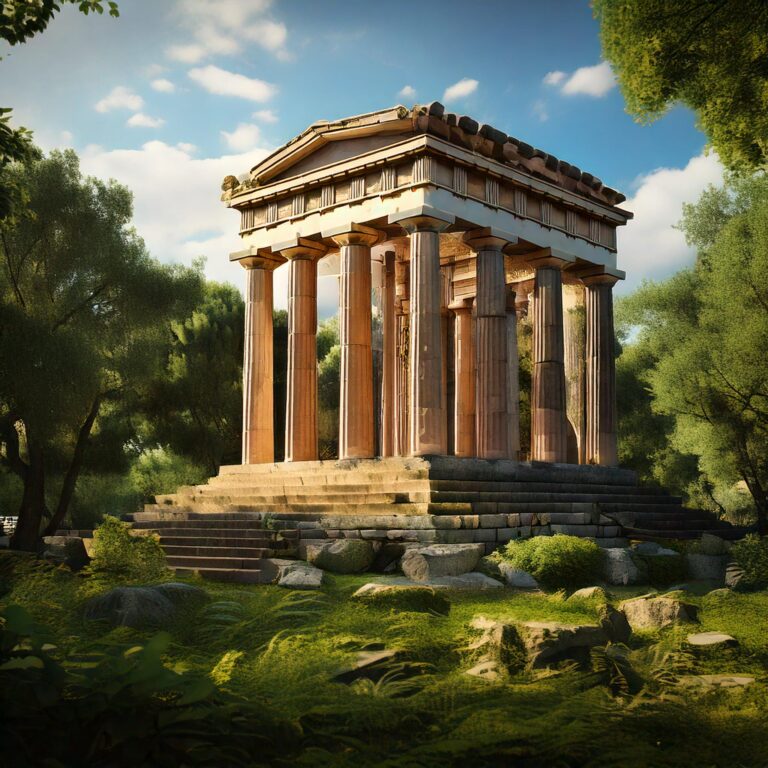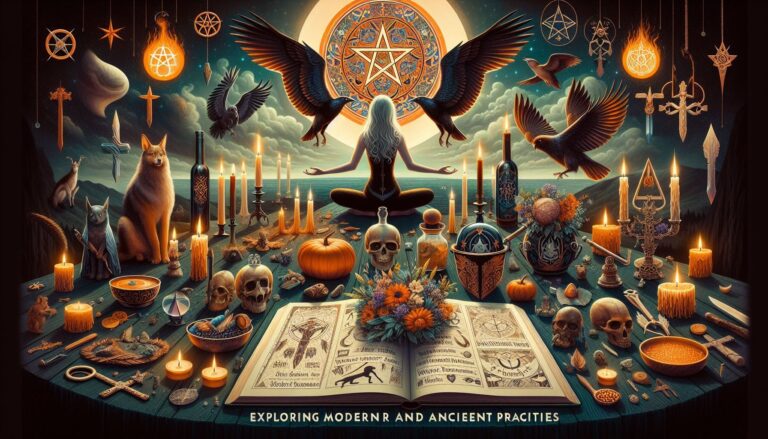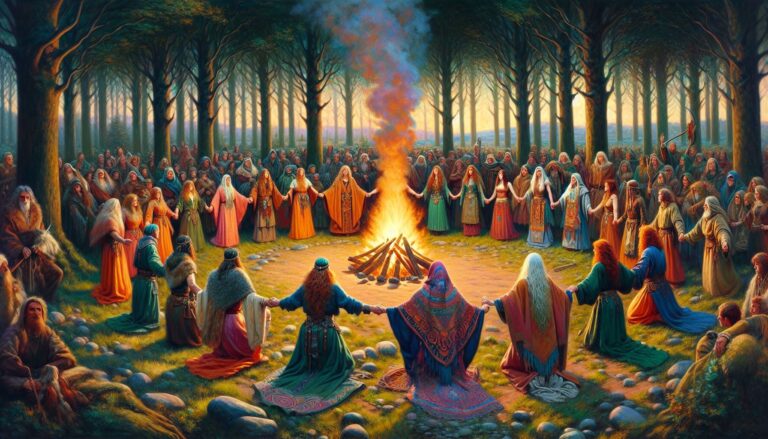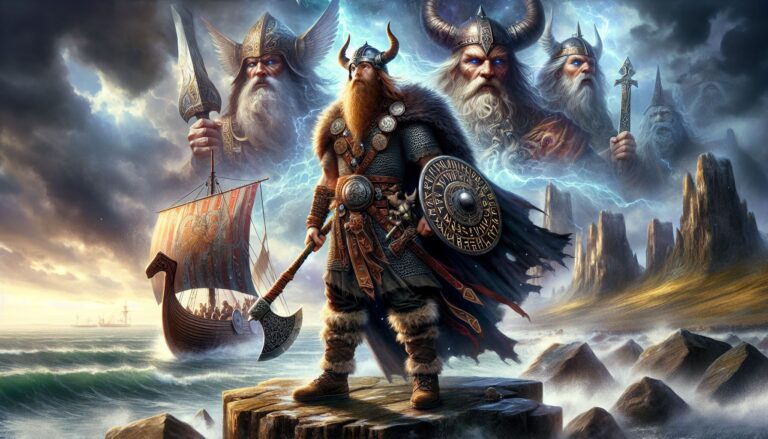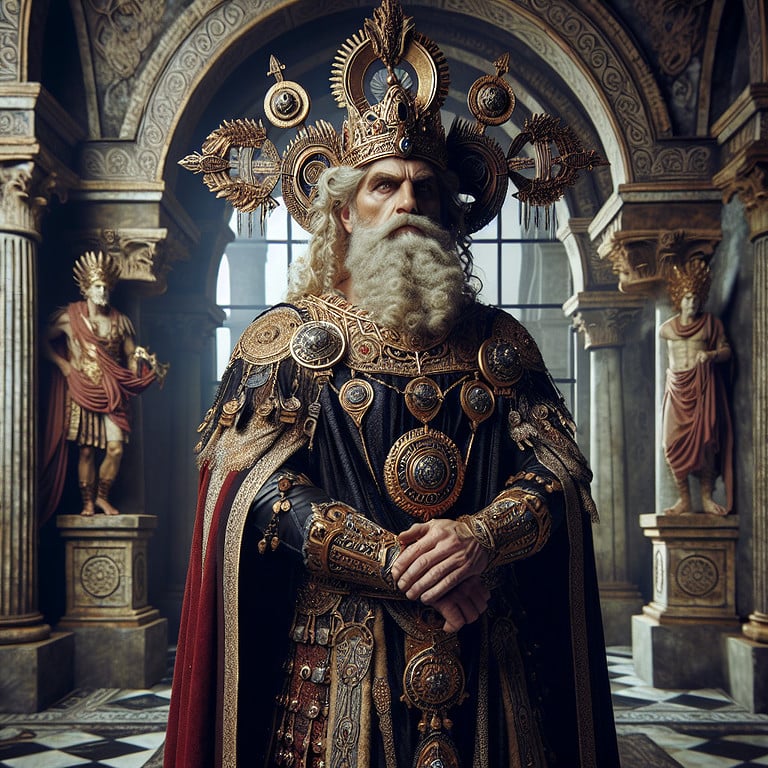Paganism is a term that refers to various religions or beliefs that do not worship the God of Abraham, the central figure of Judaism, Islam, and Christianity. Paganism can also describe modern movements that are inspired by ancient polytheistic traditions, such as Wicca, Druidry, and Heathenry.
What do the pagans believe in?
- A reverence for nature and the natural world, often seen as sacred or divine.
- A belief in spiritual beings, such as gods, goddesses, nature spirits, ancestors, and other entities.
- A respect for the diversity of paths and practices, without claiming a universal truth or authority.
- A recognition of the cycles of life, death, and rebirth, often celebrated through seasonal festivals and rituals.
- A connection to the “old ways” of pre-Christian cultures and traditions, sometimes reconstructed or adapted to modern contexts.
What countries are pagan?
- Finland, where Santa Claus is seen to reside and where many ancient traditions related to nature and the seasons are still practiced.
- Japan, where Shintoism is the native religion that worships nature and its spirits, and where many festivals and rituals celebrate the natural cycles and forces.
- Mongolia and Kazakhstan, where nomadic peoples venerate nature and follow Tengriism, a Turkic/Asian belief system that honors the sky, the earth, and the ancestors.
- Latvia and Estonia, where the summer solstice is celebrated with large festivals and where many people identify with Maausk, a philosophy that reveres nature, especially trees, and ancestors.
- Greece and Italy, where the ancient polytheistic religions of the Greeks and Romans originated and where many temples, statues, and myths still remain.
Who are the 12 pagan gods?
- Zeus, the king of the gods and the ruler of the sky, thunder, and justice.
- Hera, the queen of the gods and the goddess of marriage, women, and childbirth.
- Poseidon, the god of the sea, earthquakes, and horses.
- Demeter, the goddess of agriculture, fertility, and the seasons.
- Athena, the goddess of wisdom, war, and crafts.
- Apollo, the god of the sun, music, prophecy, and healing.
- Artemis, the goddess of the moon, hunting, and wild animals.
- Ares, the god of war, violence, and bloodshed.
- Aphrodite, the goddess of love, beauty, and desire.
- Hephaestus, the god of fire, metalworking, and craftsmanship.
- Hermes, the god of travel, commerce, and communication.
- Dionysus, the god of wine, ecstasy, and theater.
Who do pagans pray to?
Pagans pray to different deities or spirits, depending on their beliefs and traditions. Some Pagans worship nature and its elements, such as Earth, Air, Fire, and Water. Some Pagans honor the gods and goddesses of ancient cultures, such as the Greek, Roman, Celtic, Norse, or Egyptian pantheons. Some Pagans pray to their ancestors, who they see as sources of wisdom and guidance. Pagans may pray in different ways, such as through meditation, chanting, ritual, or offering. Pagans believe that prayer is a way of connecting with the divine and expressing their needs and desires.
Hellenic Paganism, also known as Hellenism or Hellenic Polytheism, is a modern revival of ancient Greek religion. This spiritual practice focuses on worshiping the pantheon of Greek gods and goddesses, with the goal of reconnecting with the rich cultural heritage of ancient Greece. For many practitioners, preserving and reviving these traditions is of utmost importance. By engaging with Hellenic Paganism, individuals can explore their ancestral beliefs and practices, leading to a deeper understanding of their identity and history. In this article, you will discover: An overview of the beliefs and values that guide Hellenic Pagans. Insights into rituals, offerings, and festivals celebrated within this vibrant community. The historical context and modern challenges faced by practitioners today. Personal experiences from individuals who have …
Paganism encompasses a vast array of beliefs and practices, both ancient and modern. Traditionally, pagans have revered the natural world, deities from various pantheons, and celebrated the cycles of life and seasons. Ancient pagans of the fourth century within the Roman Empire practiced rituals and ceremonies that honored the earth, the sun, and the moon, recognizing their significance in daily life. In contemporary times, paganism continues to thrive, evolving to include a broader spectrum of beliefs and rituals. Modern pagans may draw inspiration from ancient traditions, creating a diverse religious path that respects the interconnectedness of all things. The worship practices vary widely, including solo and group rituals, meditation, and the celebration of seasonal festivals, reflecting the rich tapestry of pagan spirituality …
Celtic Paganism, an ancient spiritual path rooted in the cultures and traditions of the Celtic peoples, has fascinated scholars and spiritual seekers alike for centuries. This comprehensive guide delves into the heart of Celtic paganism, exploring its rich mythology, revered deities, and the profound connection to nature that characterizes its practices. Through examining historical records, archaeological discoveries, and the revival of Celtic traditions in modern times, a multifaceted understanding of this ancient belief system emerges. The essence of Celtic paganism lies in its deeply animistic worldview, seeing spirits and divine presence in all aspects of the natural world. The ancient Celts held trees, rivers, and animals in high regard, believing them to be imbued with sacred power. This reverence for nature is …
Norse Paganism, deeply rooted in the ancient myths and legends of Northern Europe, offers a rich tapestry of beliefs and practices. It revolves around the worship of a pantheon of gods and goddesses, each embodying specific aspects of life and nature. This spiritual path draws upon historical texts, archaeological findings, and the enduring legacy of Norse culture to provide a vivid understanding of its practices and beliefs. The essence of Norse Paganism lies not just in the veneration of the divine but also in the celebration of the cycles of nature. Festivals marking the changing seasons, rituals to honor the deities, and the use of symbols like runes for guidance and divination are integral parts of this ancient tradition. These practices offer …
The term “pagan king” has long been used to refer to a ruler or leader of a non-Abrahamic faith, such as Ancient Egyptian, Greek, or Roman religions. While this term is often used in a negative or disparaging way, it is also used in some contexts in the Bible. In this article, we will explore what a pagan king is and how it is used in Biblical contexts. We will look at examples of pagan kings in the Bible and the significance of their presence in the Biblical narrative. Pagan Kings in the Bible Pagan kings are mentioned throughout the Bible, from the time of Abraham to the end of the New Testament. They are usually portrayed as powerful rulers who oppose …
Paganism and atheism are two distinct belief systems that often get conflated or misunderstood. To explore the question “Is Paganism Atheism?” we need to delve into the definitions, histories, and core beliefs of each. Paganism: A Broad Spectrum of Beliefs Paganism is an umbrella term that covers a wide range of earth-based spiritual practices. It is rooted in ancient traditions and is often associated with polytheism, the belief in multiple deities. Pagans find spirituality in the natural world and may practice rituals that honor the cycles of nature, such as solstices and equinoxes. Modern Paganism includes diverse paths like Wicca, Druidry, and Heathenry, each with its own set of beliefs and practices. Atheism: The Absence of Belief in Deities Atheism, by contrast, is defined by …

